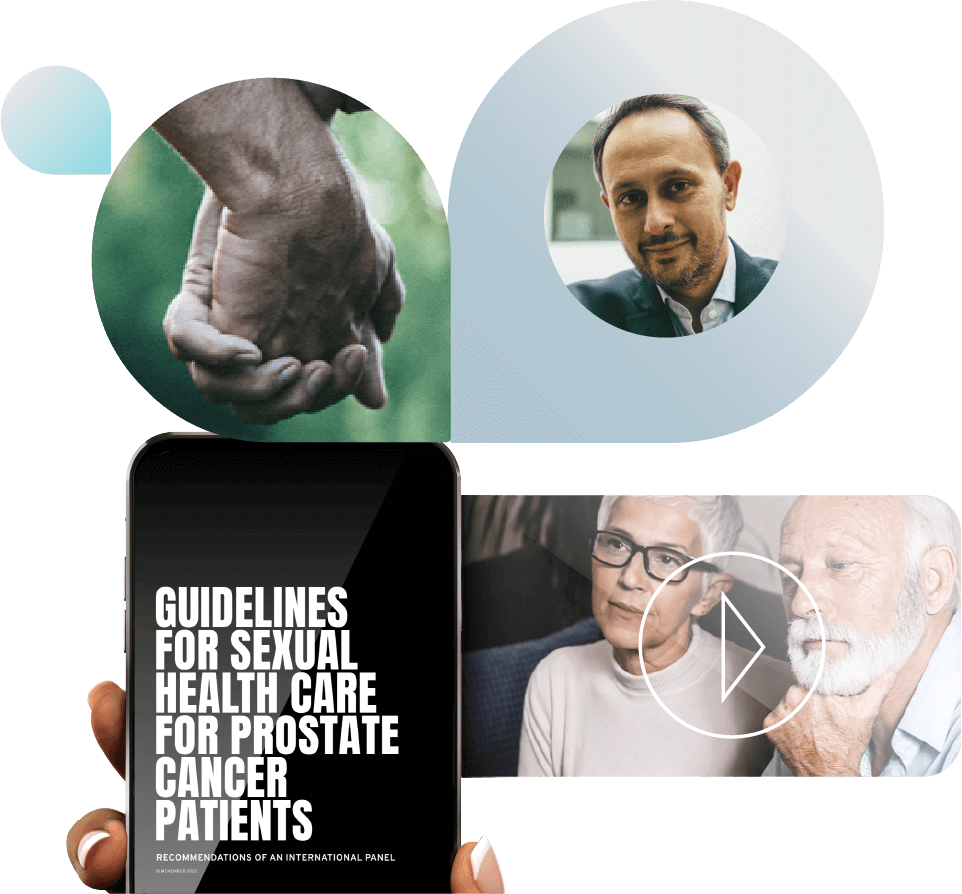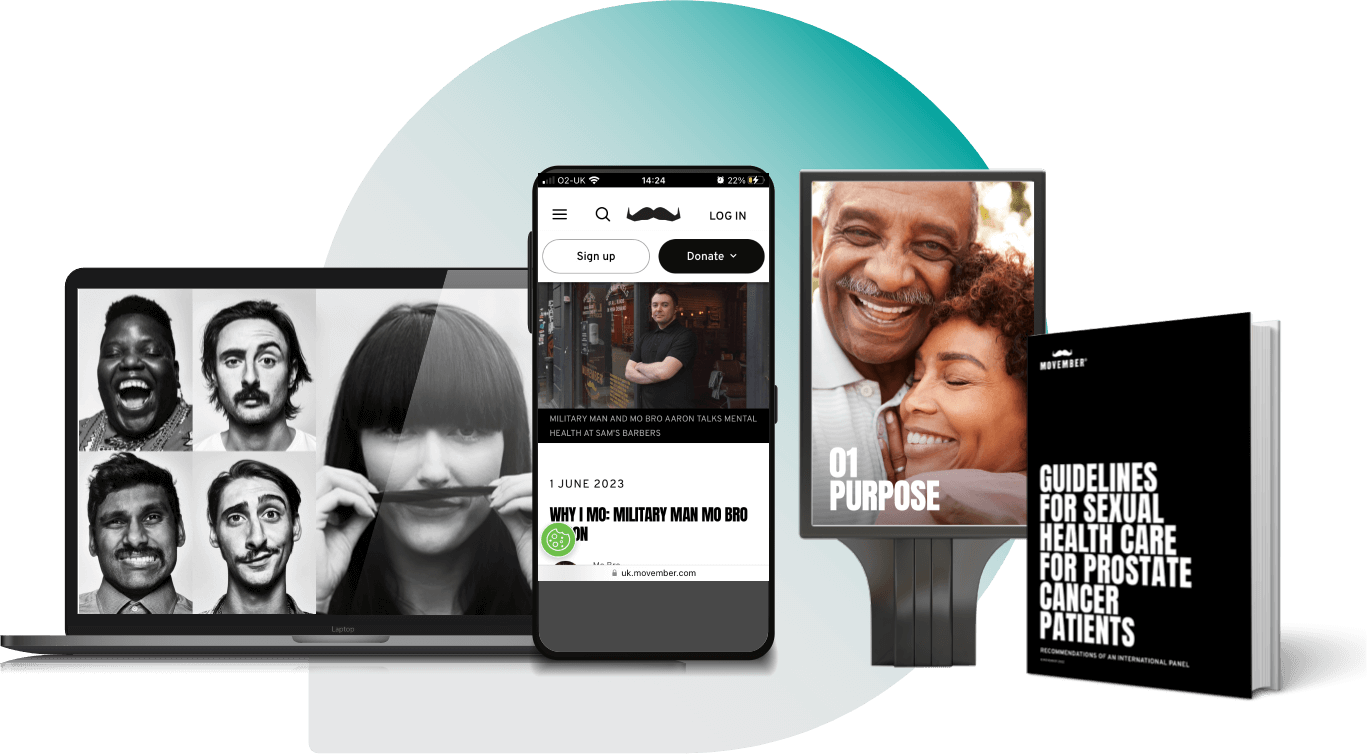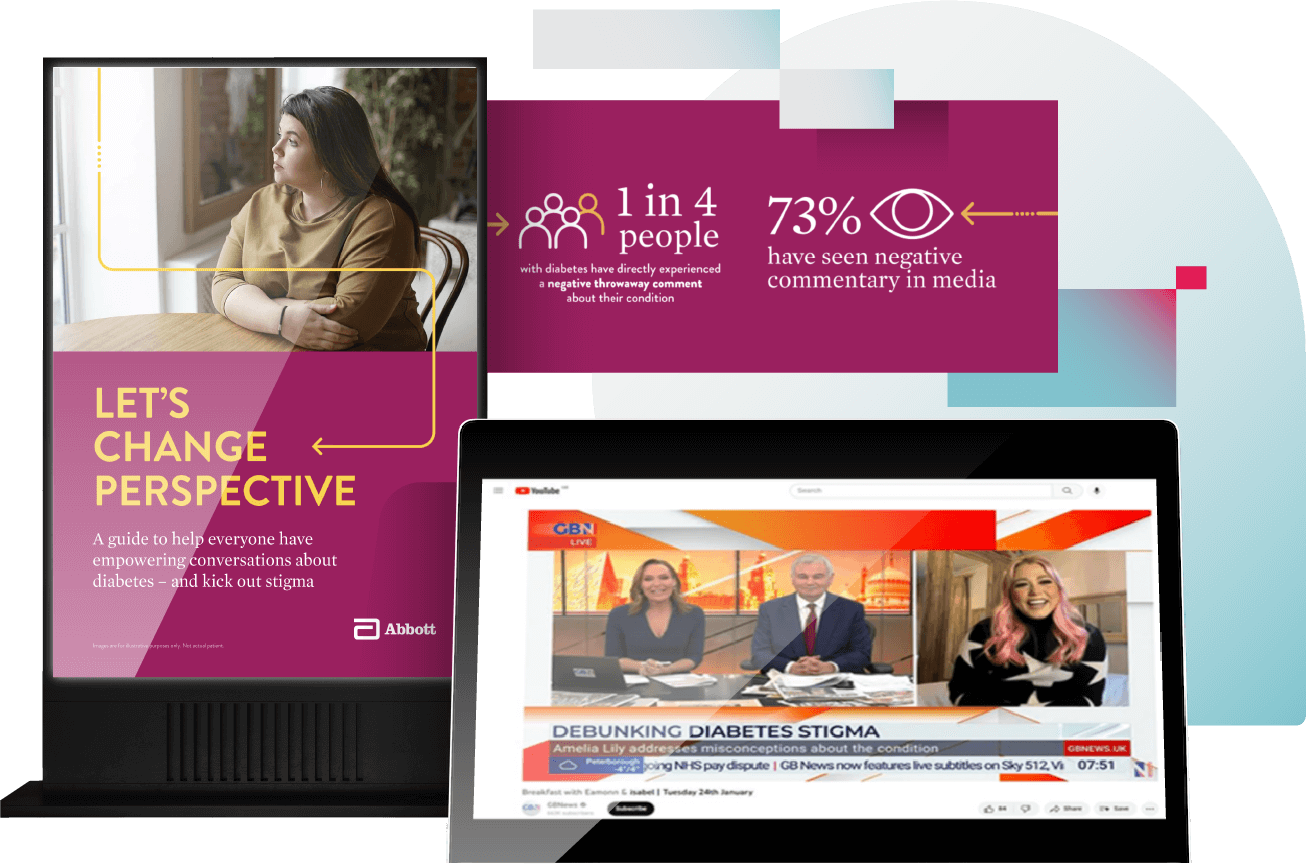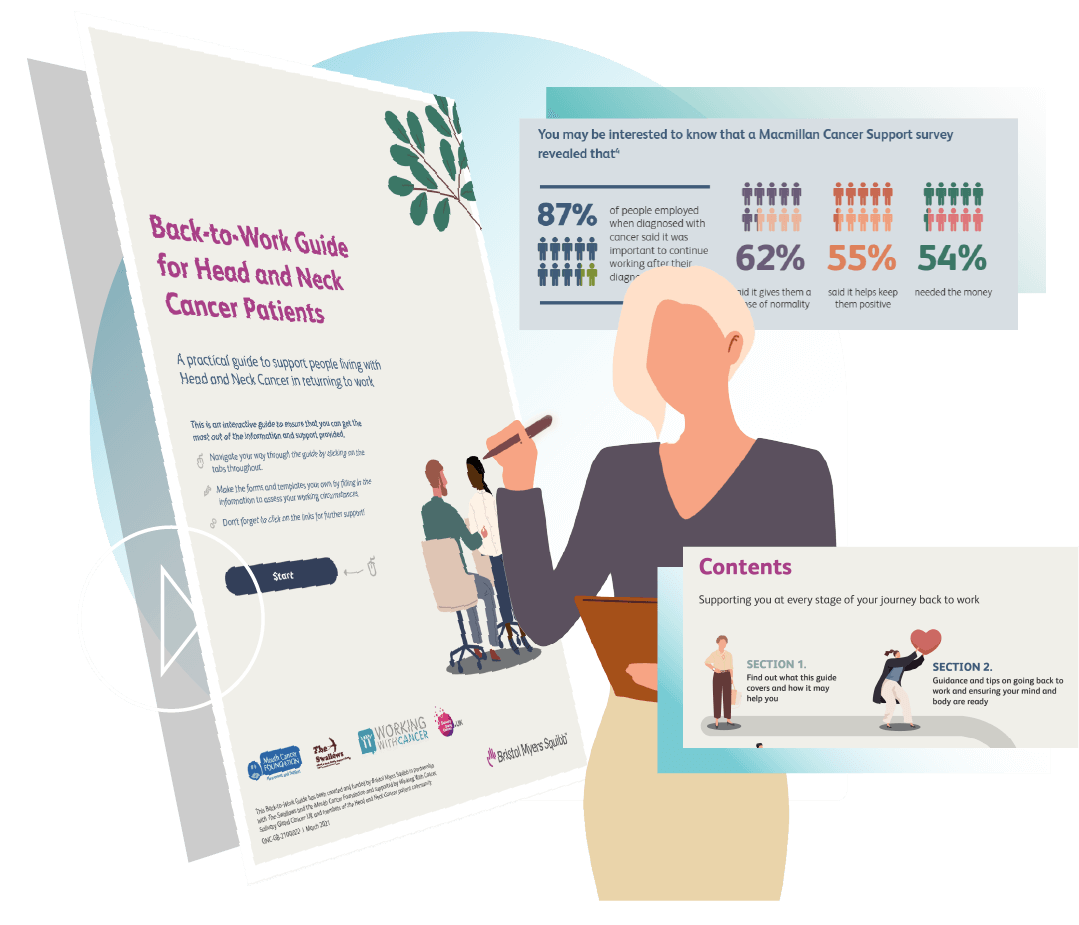
Our Work.

Movember
Let’s Talk About Sex
Medical communications campaign to launch new clinical guidelines in prostate cancer
View case study.
Movember

Movember
Let’s Talk About Sex
The challenge
Sexual dysfunction is the most reported unmet need in prostate cancer, yet the majority of men are not offered helpful intervention or support.
In collaboration with an international expert panel, Movember developed first of their kind clinical guidelines to introduce a new standard of excellence for sexual health care in prostate cancer. Our challenge was to launch and raise awareness of these guidelines.
What we did
Working with key opinion leaders and Movember ambassadors, we launched the guidelines around a key sexual health congress. A multi-channel campaign, centered around our ‘Let’s Talk About Sex’ film, shared the real-life experiences of HCPs and patients, raising awareness of the impact of sexual health on quality of life in prostate cancer patients, and the need for healthcare practitioners to provide better support.
The solution/results
- A multi-channel campaign was developed including earned media engagement, multi-market newswire distribution and HCP engagement during a 4-day Congress in Miami.
- The launch campaign generated 250 pieces of media coverage across the four key markets
- 40 health-related organisations were notified of the launch
- Communications reached an overall audience of 200 million people

Roche
SMA My Way
Digital campaign to build a new online community of SMA patients sharing life hacks
View case study.
Roche

Roche
SMA My Way
The challenge
Working with a group of SMA influencers, an information gap was identified where people with SMA found it difficult to find reliable lived experience information about how to live well with the condition.
The challenge was to activate a rare disease patient community to share lived experience.
What we did
We collaborated with the SMA community to share lived experience to empower others.
SMA My Way is a community-focused initiative that brings together the lived experiences and life hacks of people with Spinal Muscular Atrophy (SMA).
We worked with five SMA influencers to co-create the programme through a series of virtual workshops, firstly identifying the information gap, and then brainstorming solutions and working with each of them to create content. The influencers were also heavily involved in the website design, including signing off on the branding and highlighting accessibility needs.
The solution/results
Within six months of launch the campaign secured:
- 2.5m social media engagements
- 385k link clicks
- 130k website visits from 200+ territories
- 202k video views to 75%
- 71k comments, likes and shares on social posts

Abbott
Let’s Change Perspective
Social impact campaign to raise awareness of the stigma experienced by people living with diabetes
View case study.
Abbot

Abbott Diabetes
Let’s Change Perspective (campaign and media)
The challenge
For the first time in the UK, drive awareness of the challenges of stigma for people living with diabetes.
The first UK-wide survey of people with and without diabetes highlighted that ¾ people living with diabetes have identified stigma towards the condition, and 1 in 4 believe stigma has negatively impacted their management of their condition.
What we did
With a clear disconnect between the perceptions of the British public and those living with diabetes, Abbott launched a new campaign, Let’s Change Perspective to provide tools to help create better conversations around diabetes.
Working with Diabetes UK and members of the patient community, a campaign to tackle stigma in diabetes was developed and launched via media, partner and digital channels to generate a broad range of engagement across multiple audiences.
A spokesperson-led, highly targeted media outreach approach was implemented with a week-long engagement strategy.
The solution/results
The campaign received national broadcast and print coverage with over 40 outlets sharing the story including GB News, Press Association, and a range of regional BBC outlets.

Bristol Myers Squibb
Back to Work Guide
PR and patient engagement campaign to support those with head and neck cancer get back to work
View case study.
Bristol Myers Squibb

Bristol Myers Squibb
Back to Work Guide
The challenge
A stark finding identified that 23% of people with Head and Neck cancer, didn’t go back to full time work post treatment due to the long term impact of their treatment.
Whilst back-to-work support is available for cancer patients, there are no materials that provide specific advice for overcoming the nuanced challenges associated with Head and Neck cancer.
What we did
We worked collaboratively with Bristol Myers Squibb, x3 Head and Neck PAGs, x6 individual patients and x1 non-profit to co-create this new resource.
It helps empower people to assess their situation, understand if they’re ready for work, and provides practical and manageable steps to help them back into employment.
The solution/results
- 2000+ printed copies have been requested by HCPs to share with their patients, and there have been over 2000 digital downloads
- It was a finalist at the 2021 Communiqué and PMEA awards
- But most importantly, we heard from people for whom the guide changed their lives. One person was going to be let go from their job due to fatigue, but upon presenting the legal definitions in the Back-to-Work Guide, the employer retired them for three years on full pay. Another person was asked to leave their job due to facial disfigurement. After sharing some of the content of the guide with their HR team, they received £60,000 in compensation and an apology.




